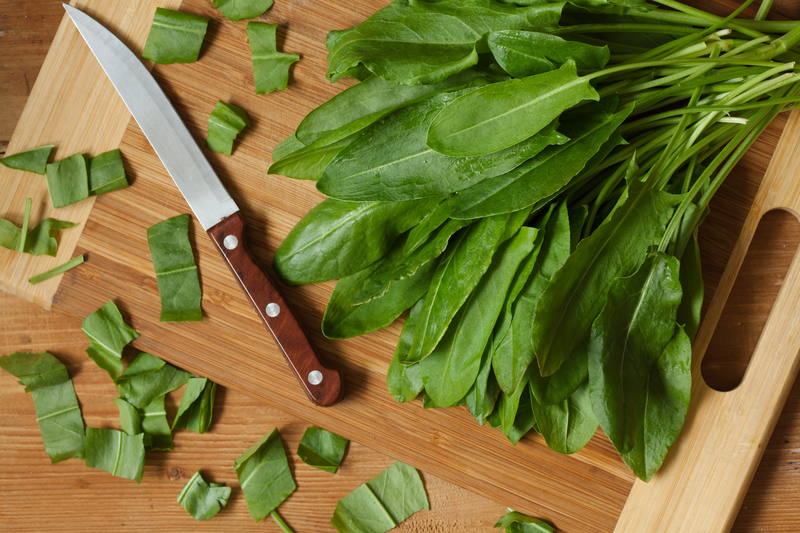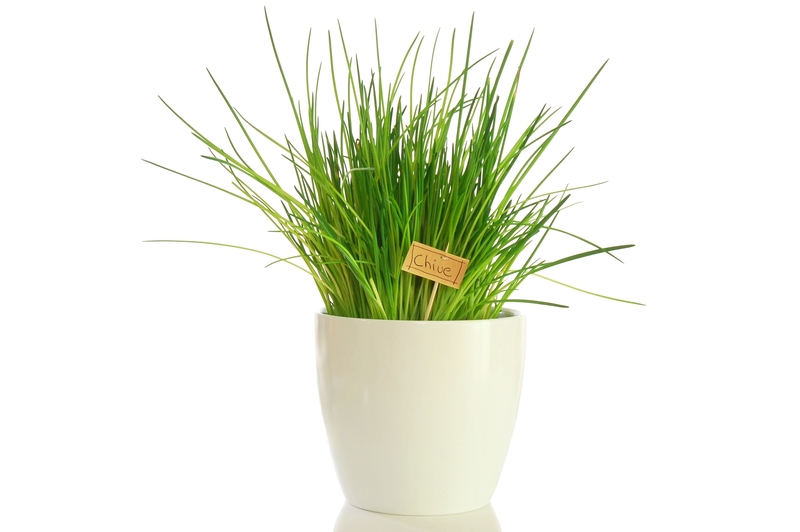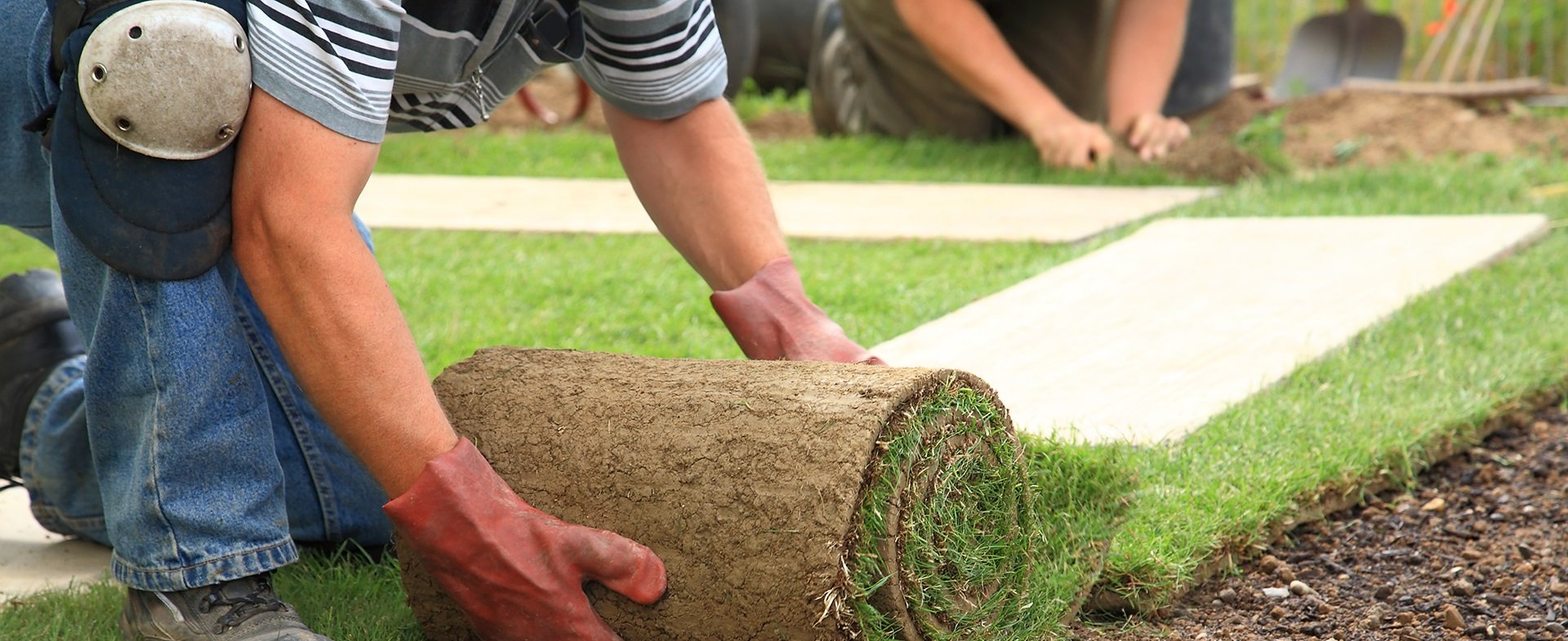Soil Enrichment Revolution: The Organic Waste Way
Posted on 28/05/2025
Soil Enrichment Revolution: The Organic Waste Way
The world is confronting a pivotal era--a soil enrichment revolution. As the heartbeat of agriculture, healthy soil is integral to food security, environmental well-being, and sustainability. Remarkably, the solution to rejuvenating our exhausted soil may lie in something we have long overlooked: organic waste. This article explores the innovative journey of enriching soil using organic waste, providing practical guidance and comprehensive insights for homeowners, farmers, and environmental advocates alike.
The Crisis: Depleting Soil and Modern Agriculture
Intensive monoculture, excessive chemical use, and poor land management have left soil everywhere fragile and degraded. According to global reports, nearly one-third of the planet's arable land is severely degraded--stripped of its nutrients, structure, and biological life. The result? Lower yields, greater need for synthetic inputs, and diminished resilience to environmental stressors.
The Case for Natural Soil Enrichment
- Restores Microbial Diversity: Healthy soil teems with beneficial microbes that facilitate nutrient cycling.
- Improves Water Retention: Organic-rich soil retains water more effectively, reducing irrigation needs.
- Boosts Crop Yields: Nutrient-rich soil supports stronger, healthier plants with higher yields.
- Reduces Chemical Dependency: Natural fertility diminishes the need for artificial fertilizers and pesticides.
But how can we catalyze a soil enrichment revolution that stands the test of time? The answer lies in rethinking waste--not as garbage, but as a priceless resource.

Organic Waste: The Heart of Soil Enrichment
Organic waste refers to plant and animal matter--from kitchen scraps to garden trimmings and livestock manure. When decomposed correctly, this 'waste' transforms into humus, a rich, organic soil amendment that builds soil structure, delivers nutrients, and encourages a vibrant ecosystem underground.
What Types of Organic Waste Fuel Soil Enrichment?
- Food Scraps: Vegetable peels, fruit rinds, eggshells, and coffee grounds add valuable nutrients to compost.
- Yard Waste: Grass clippings, pruned branches, autumn leaves, and flowers are high in carbon and provide structure.
- Animal Manures: Cow, horse, sheep, and poultry manure supply rich nitrogen but must be well-aged to avoid burning plants.
- Agricultural Byproducts: Straw, husks, corn stalks, and rice hulls can be valuable bulk materials.
- Biosolids: Properly treated waste from municipal systems can enrich soil if certified safe for agriculture.
Organic waste management is no longer a niche practice reserved for eco-warriors. Today, it's a mainstream movement shaping the future of sustainable agriculture and climate-smart gardening.
How Organic Waste Transforms Soil
The Science Behind Soil Enrichment
The magic starts with decomposition--a natural, microbial-driven process where organic matter is broken down into simpler components. As bacteria, fungi, worms, and insects feast on waste, they generate humus, boost soil organic matter, and release vital nutrients (nitrogen, phosphorus, potassium, calcium, magnesium, and trace minerals).
- Humus: A stable, spongy material that improves soil structure, aeration, and water-holding capacity.
- Nutrient Cycling: Compost releases nutrients gradually, minimizing leaching and promoting steady plant growth.
- Microbial Activity: Increased organic matter supports beneficial microbes, outcompeting soil-borne diseases and pests.
- Carbon Sequestration: Building soil organic matter stores carbon underground, combating climate change.
Soil Enrichment with Organic Waste is not just about adding nutrients--it's about creating a resilient, living soil that underpins a productive and sustainable agro-ecosystem.
Revolutionizing Soil With Composting
The Composting Process: A Simple Guide
- Collection: Gather food scraps, yard waste, and suitable biodegradable materials.
- Layering: Alternate green materials (rich in nitrogen) and brown materials (high in carbon).
- Moisture: Keep compost moist but not soggy--a texture akin to a wrung-out sponge is ideal.
- Aeration: Turn or fluff the pile regularly to supply oxygen and speed up decomposition.
- Curing: Let the pile mature until it appears dark, crumbly, and earthy-smelling--ready for soil enrichment.
Hot vs. Cold Composting: Hot composting (130-160?F) kills weed seeds and pathogens quickly; cold composting is slower and less labor-intensive but may not destroy all unwanted elements.
Vermicomposting: Worm Power
*Vermicomposting* leverages red wiggler worms to devour organic waste and excrete castings. These castings are supercharged with plant nutrients and beneficial microbes, offering **premium organic waste soil enrichment** for gardens, potted plants, and raised beds.
Organic Waste Solutions for Every Scale
Home Gardeners: Simple Organic Waste Soil Enrichment
- Backyard compost bins or tumblers make organic waste recycling easy and accessible.
- Trench composting allows you to bury kitchen scraps directly in empty beds, enriching soil in place.
- Mulching with grass clippings or leaves conserves moisture and returns nutrients to the soil surface.
- Worm bins fit indoors or on balconies for kitchen waste transformation.
Farms & Large-Scale Organic Waste Soil Management
- Windrow composting for processing tons of manure, crop residues, and agri-waste.
- On-farm digesters convert manure and crop waste into biogas energy and nutrient-rich digestate for soil amendment.
- Sheet composting spreads raw organic matter on fields to break down naturally over time.
- Biochar production via pyrolysis creates a stable, carbon-rich soil enhancer from agri-waste.
Innovative City and Community Approaches
- Community compost hubs accept household and restaurant scraps for local soil enrichment.
- Municipal green waste programs turn landscaping debris into organic mulch and compost for public spaces.
- School & urban gardens use cafeteria waste to build healthy soils for educational and nutritional benefits.
Benefits of the Organic Waste Way for Soil Enrichment
Harnessing organic waste for soil productivity improvement is a win-win for the environment, your garden, and the local economy. Here's why:
- Reduces landfill waste: Decomposing organic waste in landfills releases methane, a potent greenhouse gas. Composting diverts this material, slashing emissions.
- Lowers fertilizer costs: Homegrown compost is a budget-friendly alternative to synthetic fertilizers.
- Improves soil health: Enhanced structure, aeration, and cation exchange capacity lead to more robust plants.
- Boosts biodiversity: Rich, organic soil supports earthworms, insects, fungi, and other key species.
- Supports climate action: Healthy soils store more carbon, playing a major role in climate change mitigation.
- Empowers local economies: Organic waste recycling creates jobs across collection, processing, and distribution sectors.
Organic Waste Soil Enrichment: Best Practices
What to Include and Avoid
- Include: Fruit and vegetable scraps, coffee grounds, tea leaves, eggshells, leafy greens, plant trimmings.
- Limit: Citrus and onions (slow to break down), uneaten bread or cooked rice (attracts pests in open bins).
- Do Not Add: Meat, dairy, oils, diseased plant material, or pet droppings to standard compost piles, as they can cause odors, diseases, or attract vermin.
Tips for Effective Organic Waste Composting
- Shred large items to boost decomposition speed.
- Alternate moist (green) and dry (brown) materials for the right carbon-nitrogen balance.
- Monitor temperature--a hot pile means active microbes.
- Aerate regularly to avoid anaerobic smells and maximize breakdown.
Case Studies: Soil Enrichment Success With Organic Waste
The Urban Community Farm
A city garden in Brooklyn, New York, implemented a neighborhood food scrap drop-off. Over 18 months, they processed more than 10 tons of organic waste, returning nearly 8,000 pounds of rich compost to their raised beds. Results? Doubling of harvest yields and visible improvements in water retention and pest resistance.
Medium-Scale Agriculture in India
A 30-acre organic vegetable operation adopted windrow and vermicomposting for crop residues and cow manure. Soil organic matter jumped from 0.9% to 2.2% in three years--slashing fertilizer costs by half and producing tastier, more robust crops.
Residential Soil Rejuvenation
A suburban family began home composting kitchen waste and autumn leaves. Within two years, compacted, sandy soil turned loamy and friable, boasting flourishing perennials, improved lawn health, and a dramatic reduction in irrigation needs.
Barriers and Solutions: The Path Forward for Organic Waste Soil Enrichment
- Lack of space? Try vermicomposting indoors or install a compact compost tumbler.
- No yard? Share compost bins with friends, join a community hub, or use bokashi fermentation for odor-free, countertop composting.
- Concerned about pests? Bury food scraps, use secure bins, and avoid meats and fats.
- Too busy? Opt for low-maintenance cold composting or use collected green waste as mulch.
- Uncertain what to compost? Refer to composting apps, local guides, and community workshops for lists and troubleshooting.
Organic Waste & The Future of Soil Enrichment
With the world's population rising and agricultural challenges mounting, rejuvenating the soil through organic waste is both an ancient tradition and a modern necessity. From backyard bins to citywide compost programs and regenerative farms, the organic waste-based soil enrichment revolution is gaining ground--offering hope for productive soils, safe food, and a healthier planet.
The movement is simple, scalable, and sustainable--it's time to rethink what we throw away, and rediscover the wealth beneath our feet.

Frequently Asked Questions on Organic Waste Soil Enrichment
1. How long does it take organic waste to enrich soil?
Typical composting takes 2-12 months, depending on conditions. Well-managed piles with regular turning and balanced materials decompose faster; cold or neglected piles take longer.
2. Can all organic waste be composted?
Most plant-based kitchen and yard scraps are suitable. Avoid meat, dairy, and fatty foods in open piles to prevent pests.
3. Is organic waste soil enrichment suitable for all soils?
Yes! All soil types--clay, sand, silt, or loam--benefit from increased organic matter, though the quantity and preparation method can be adjusted for local conditions.
4. Can organic waste attract pests?
Enclosed bins, regular aeration, and burying scraps minimize pest issues. Avoiding animal products in compost piles is critical for pest control.
5. Does composting organic waste smell bad?
A well-balanced pile with the right carbon/nitrogen ratio and adequate aeration should smell earthy, not rotten. Unpleasant odors suggest too much moisture, green material, or lack of oxygen.
The Soil Enrichment Revolution: Take Action Today
The transition to sustainable soil enrichment practices using organic waste is within everyone's reach. Whether you're a home gardener, farmer, or urban dweller, you can play a part in this revolution. By harnessing your organic waste, you can:
- Enhance your soil health and plant growth
- Reduce your carbon footprint
- Protect the environment for future generations
- Build community and local food resilience
Join the Soil Enrichment Revolution--turn your organic waste into a force for renewal, and transform your ground into fertile, living soil!
*Ready to start your journey? Set up a compost bin, attend a local workshop, or connect with a community garden. The path to sustainable, thriving soils begins with a single peel, leaf, or clippings--be part of the organic waste soil enrichment movement today!*

